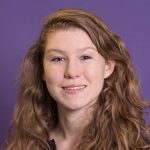- Even during a total solar eclipse, exposure to harmful UV rays can lead to sunburn.
- The window of totality, where the sun is completely eclipsed, lasts only four minutes at most.
- Wear sunscreen when you're viewing the total solar eclipse on Monday.
If you're watching the total solar eclipse on Monday, be sure to wear sunscreen.
Hopefully you already have a plan to keep your eyes safe from the sun — like wearing ISO-certified solar eclipse glasses. But you also need to think about your skin during the hour or two you spend watching the moon creep in front of the sun.
"The levels of damaging ultraviolet (UV) light will only be low during the brief, total solar eclipse occurring within the narrow path of totality, in which the sun is completely blocked by the moon," Christin Burd, a professor of molecular genetics at The Ohio State University who studies melanoma and aging, told Business Insider in an email ahead of the last US total solar eclipse, in 2017.
Even if you're hoping to catch a peek at the eclipse between clouds, sunscreen is still essential. That's because UV light, which we can't see, still penetrates clouds.
That safe window of totality only lasts four minutes at most. After that, "the unblocked UV rays will be intense and could easily result in sunburn," Burn said.

Those who are just popping out for a few minutes to see a partial eclipse, which varies in timing and size across the country, might get away without lathering up sunblock.
Here are some other things you should bring if you're going to see the total solar eclipse, according to Mark Littman and Fred Espenek, authors of "Totality: The Great American Eclipses of 2017 and 2024."
-
A colander or straw hat, which can project the eclipse through holes onto paper or cardboard.
-
Bug spray
-
Snacks — it will be late afternoon, after all
-
Binoculars — for pointing at paper
-
Sunglasses (not for looking at the eclipse)
-
Solar eclipse glasses and solar filters — for looking at the eclipse
-
Camera equipment to take photos of the eclipse
-
A notebook to write down observations.
Lydia Ramsey Pflanzer contributed to an earlier version of this post.

